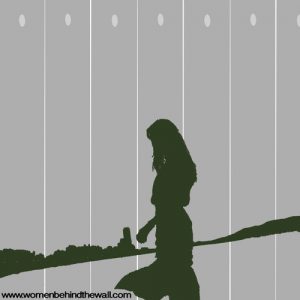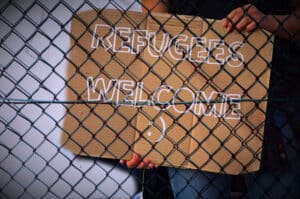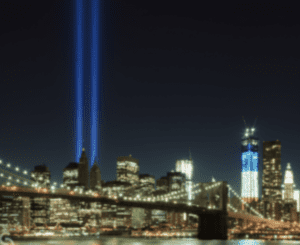 Podcast Episode #6: Two Cities Within One
Podcast Episode #6: Two Cities Within One
The Women Behind the Wall podcast highlights female voices from the Holy Land, and is hosted and produced solely by women who live and work in Jerusalem. The podcast seeks to amplify minority voices and perspectives, especially women’s experiences in the private sphere as it is affected by the public sphere. We hope you’ll join us here on Thursdays as we highlight each episode.
Listen to Two Cities Within One here
“Supporting Israel was actually considered a very social-justice-oriented thing. However, I did not grow up with a great knowledge of the Palestinians.” In the sixth episode of Women Behind the Wall, listeners hear from Heather, an American-Israeli who now works on social justice and human rights issues with Palestinian women in East Jerusalem and the West Bank. She explains how her religious upbringing shaped her involvement today.
Heather grew up in North Carolina, in a Christian family with Jewish heritage that she considered to be pro-Israel, and also focused on social justice. Her first trip to the Holy Land was when she was 16 years old, at the beginning of the Second Intifada, or “uprising” which was a period of intensified Israeli and Palestinian violence. While visiting a family who lived in a settlement, she recalls seeing the building tension but recognized not knowing the context, thinking, “There is more to this that I am not understanding.”
Heather’s experiences in Israel sparked a desire to learn about the conflict and her Jewish roots. She returned during the 2009 Gaza War as part of a study abroad program aimed at exploring both sides of the conflict. At the time, she acknowledges, “I didn’t know where I stood on the issue.” Heather stayed in Israel and ended up marrying an Israeli. She recalls that the 2014 Gaza War led her away from always wanting to be balanced in her approach to the conflict. “I realize that there is a lot of injustice and my own faith, I felt that Jesus was someone who stood on the side of the oppressed and challenged the systems of the day. And so my perspective began to change into ‘How can we challenge the current situation, it’s not balanced, and there’s a lot of injustice and the idea that we can all come equal distance and solve this conflict is not going to happen until we address the inequalities and injustice.’ And I believe that my faith highly motivated me in that.”
“There is more to this that I am not understanding.”
Heather started to volunteer at a women’s center in East Jerusalem, where women would come and share their stories of how the occupation was affecting them, as well as occurrences of violence at home. Heather saw how these issues were connected, and that the pressure from the occupation and human rights violations that Palestinians face daily translate into pressure within the home, across the economic spectrum.
With the way the Israeli separation wall is constructed through Jerusalem, between a quarter to one-third of the Palestinian Jerusalemite population is on the West Bank side of the wall, despite being born and raised in Jerusalem proper. This reality means that Palestinians from within Jerusalem must still cross checkpoints to get to other parts of Jerusalem. Depending on where one is from, people’s lives are very different on the different sides of the city and the wall. “Israel tries to claim that Jerusalem is unified. Even some of the people who are for annexing the West Bank, they give it as an example of the positive features of annexation. However, in reality, it’s a much different situation. Jerusalem is not unified. West Jerusalem is a western society that is very comfortable. Most people, their day-to-day lives are fairly peaceful. Whereas in East Jerusalem, the lands that were annexed (in 1967), they still do not even have many of their basic services, like garbage pickup services don’t run there regularly, which forces people to have to burn their trash. The sewage runs into the streets. For example, even from the university that I attended, Hebrew University, their sewage runs into Al-Issawiya and nobody does anything about it because it’s just East Jerusalem.”
Heather stresses that Jerusalem is two cities within one. She also emphasizes that gender-based violence is especially prevalent among powerless societies, referring to the lack of equality Palestinians have. Heather shares about two human rights organizations, Yesh Din and Adalah. Yesh Din is an Israeli-led organization providing legal aid, including high court petitions, on behalf of Palestinians in the Occupied Palestinian Territories. Adalah is a Palestinian-led organization focusing on the Palestinian community with Israeli citizenship, providing legal representation and advocacy.
This episode of the podcast is filled with hard conversations and startling truths, which Heather bears witness to every day in her work, like when she saw Israeli border police come into a Palestinian neighborhood and take a seven-year-old child into custody without the ability to see his parents. Take a listen for an in-depth account from an American-Israeli working for human rights for Palestinians.
We are grateful for those like Heather, who are willing to bear witness as well as do the hard work for justice for the oppressed. Lord, we ask that more Christians, in America and around the world, would take up the call to act for justice. Amen.
CSA is grateful to our friends at Churches for Middle East Peace for reprint permissions.


